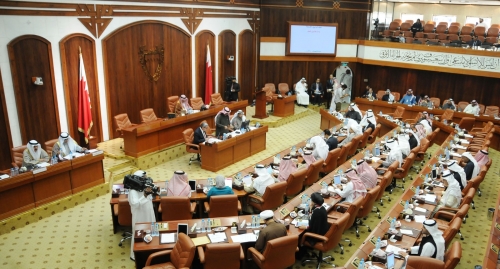Master’s Degree and Experience: New Requirements for Expat Workers in Bahrain's Public Sector
TDT | Manama
Email: mail@newsofbahrain.com
In a significant move to prioritize local talent, the Bahraini Parliament today passed a law that imposes strict hiring criteria on expatriates seeking employment in public sector roles. The new legislation mandates that expat hires must hold a master’s degree and have at least ten years of experience in their respective fields. Additionally, contracts for expatriate employees are limited to two years, renewable only with the approval of the Civil Service Bureau.
This law received near-unanimous support from MPs, with only MP Abdulla Al Rumaihi opposing the measure. By setting high qualifications and contract limits for expatriate hires, the legislation aims to ensure that Bahrainis are given preferential access to government job opportunities. Importantly, expatriate employees are now required to train a Bahraini staff member to take over their responsibilities, fostering knowledge transfer and empowering local workers to assume key roles.
While the initiative seeks to enhance job prospects for Bahrainis and equip them for future public sector positions, it has raised concerns regarding potential hiring inflexibility. Government officials have warned that the stringent requirements may restrict the pool of qualified candidates for specialized roles, potentially hindering the ability of departments to fill essential positions with necessary expertise.
His Excellency Ghanim Al Buainain, Minister of Parliamentary Affairs, reported a 17% decrease in the number of expatriate employees in the public sector, with current statistics revealing that 5,800 expats are employed in government roles. Al Buainain expressed concerns over the feasibility of the new requirement for a master’s degree, noting that the prevailing standard qualification is typically a bachelor’s degree. He further highlighted the fact that 28 positions in the public sector remain unfilled because no Bahraini applicants have come forward for these roles.
In a memo to government officials, it was cautioned that maintaining flexibility in hiring practices is essential to attract specialized skills. The memo emphasized that rigid standards, if codified into law rather than left as administrative guidelines, could prevent departments from adapting to the evolving demands of the job market.
As Bahrain moves forward with this legislation, the government faces the challenge of balancing the need to prioritize local talent while ensuring that essential roles within the public sector are filled by qualified professionals.
Related Posts

